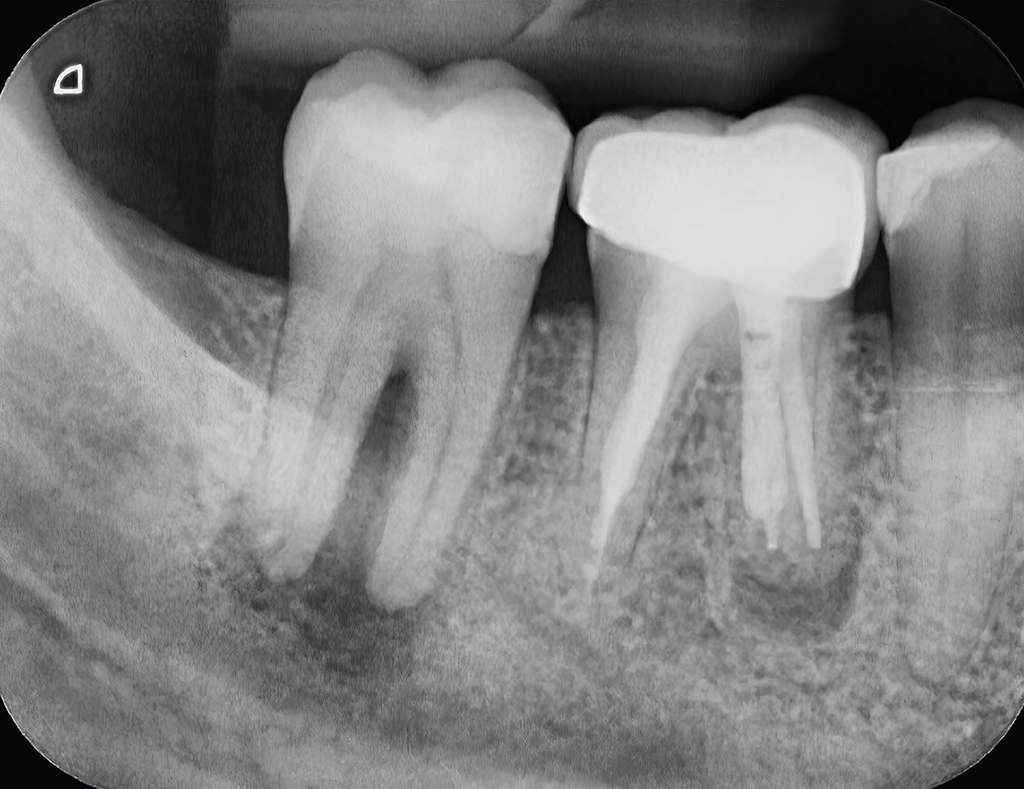
FAQs About Dental Osteomyelitis From An Experienced Oral Surgeon | Richardson, TX
Photo By Anita van den Broek at Shutterstock
At NextGen OMS, we aim to educate our patients on their conditions. The better you understand your condition, the more comfortable you’ll feel before, during, and after your surgery. If you live in Richardson, TX, and your doctor or dentist has recommended you to our office, know that you’re in good hands. Dr. Eftekhari has provided surgical and nonsurgical solutions for patients with osteomyelitis and other dental bone conditions for many years. He is one of the top oral maxillofacial surgeons in the region.
Osteomyelitis can result from a number of conditions, including cavities, periodontal disease, sinus infections, and radiation therapy. We have put together a list of frequently asked questions to help you learn more about this condition and how our oral surgeon may treat it.
What Is Osteomyelitis?
Osteomyelitis is a severe bone infection that causes inflammation in pain.
What Is the Surgical Solution for Osteomyelitis?
If you have osteomyelitis, your surgeon will probably remove the infected bone and provide antibiotics through an IV to help speed healing in the area. During the surgery, your doctor will drain the area, take out the infected tissue and bone, restore blood flow to the remaining bone and check for additional signs of infection.
Is Osteomyelitis of the Jaw Serious?
Dental osteomyelitis typically causes great pain. You can develop this condition following periodontal disease or untreated cavities. Jaw osteomyelitis can occur when infections spread from your teeth to your jaw. Additionally, radiation therapy, osteoporosis and malignancies increase your risk of developing this condition.
Does Osteomyelitis Always Require Surgery?
If found early enough, osteomyelitis of the jaw can be treated with antibiotics with good results. However, if you develop chronic osteomyelitis, you may have a necrotic bone that has to be removed by an oral surgeon.
When Is Osteomyelitis an Emergency?
If you have severe pain and develop chronic osteomyelitis, it should be treated as quickly as possible. Sometimes patients go to the emergency room due to acute pain resulting from dental osteomyelitis. At that point, you may be referred to an oral surgeon to discuss the possibility of a surgical solution.
What Is the Typical Prognosis for Osteomyelitis?
With treatment, you may expect a good outcome for acute jaw osteomyelitis. If you develop chronic osteomyelitis, you may experience symptoms and require one or more surgeries. This varies on a case-by-case basis and you can ask your surgeon for details during your consultation.
Does Oral Osteomyelitis Spread Quickly?
You may notice that osteomyelitis spreads quickly over a period of up to 10 days. Left untreated, the infection associated with this condition can lead to necrotic or dead bone tissue.
What Long-Term Effects Accompany Osteomyelitis?
Following a severe infection, your jaw is more susceptible to fractures, breakage and reinfection. Proper oral hygiene can expedite the healing process and help prevent further problems. In the early phase of this condition, you develop acute osteomyelitis and may experience fever, facial cellulitis (skin infection) and leukocytosis (increase in white blood cells). A number of conditions can result following long-term or chronic dental osteomyelitis, including tooth loss and bone loss.
Are There Complications With Osteomyelitis?
Yes, there are several possible complications following a diagnosis of osteomyelitis of the jaw. These include bone abscess, spread of infection to other areas of the body, and bone necrosis. If left untreated, this condition can lead to blood poisoning and other related infections. That’s why it’s important to find an experienced oral surgeon in Richardson, TX, such as Dr. Eftekhari.
Does Osteomyelitis Cause Sepsis?
Yes, left untreated this condition can lead to sepsis, or infection, which can spread throughout your body.
Why Is It Important to Find the Right Oral Surgeon to Treat Dental Osteomyelitis?
Osteomyelitis can lead to very painful conditions and cause the loss of bone and teeth. Working with an oral surgeon experienced and maxillofacial surgery can provide the best care possible for this serious condition.
Sometimes, this condition resolves itself after one surgery. At other times, you need multiple surgeries for chronic osteomyelitis. It’s important to have an experienced oral surgeon supporting you through this condition to prevent the loss of further bone.
NextGen OMS in Richardson, TX
At NextGen OMS, we treat a number of oral maxillofacial conditions. Many dentists and physicians refer clients to us for complicated procedures. We accept new patients and will do everything possible to make your treatment go as smoothly as possible. We welcome your questions and you will meet with the doctor prior to your procedure to go over any questions that you may have.
With osteomyelitis, the doctor may request additional scans to better diagnose your condition. If nonsurgical methods don’t resolve the issue, you may need to schedule surgery for a better outcome.
As with any other condition impacting the mouth and face, this condition can impair your ability to speak, eat and can alter your appearance. That’s why it’s important to come to an oral surgeon who can also perform reconstructive surgery if needed.
A NextGen OMS, we believe that your comfort and confidence are paramount to your recovery. Contact us today with any questions that you may have prior to scheduling a consultation. Feel free to stop by the office and meet our staff. If you do need surgery, we will explain the entire procedure and support you before, during and after your surgery.
You are more than just a patient to us. Therefore, we treat you like family and want you to understand all the possible treatment options available to you. Contact us today For more information or to schedule an appointment with the oral surgeon. You’re in good hands with our experienced, dedicated staff.


